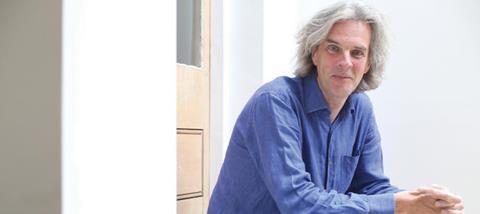
There have been many biographies of Martin Luther. What made you want to write another one?
They say there have been more books written about Martin Luther than anyone else other than Jesus! But if you Google ‘Martin Luther’ what you get immediately is Martin Luther King. People very easily understand the relevance of Martin Luther King, but Martin Luther feels distant and dusty. Luther has been pushed into the background and people outside of the Lutheran Church and academia often don’t understand his relevance.
So what is his relevance today?
There’s an awful parallel between Martin Luther and Donald Trump. Luther was a populist who touched on a deep well of discontent from people who felt left out by the establishment and felt dis-empowered. Luther used alternative channels of publishing to build up a mass movement which the whole establishment stood against. He thought Rome was hopelessly corrupt, he wanted to “drain the Vatican swamp”. And the intemperateness of his language! If I got a bull of excommunication, I’d go away and think about it. Luther almost immediately wrote a tract called “Against this execrable bull of the Antichrist”. It makes me think of Trump’s tweets. Luther wrote in anger a lot of the time.
How has Luther affected the lives of everyone in Europe – not just Christians?
Luther’s translation of the Bible is credited by scholars as inventing or codifying the German language. The Germans buy more books per head of the population than any other nation in the world, so did Luther make the Germans bookish?
There’s also an argument which says the Protestant Work Ethic was born under Luther. He in a sense turned the world capitalist, and again – there is Germany, the powerhouse of Europe.
But the most important thing about Luther is sola scriptura – ‘the scriptures only’. He said you have to read the Bible and make your own mind up. That’s a seismic change. Religion was a collective thing where doctrine was handed down by tradition. He moved from the collective to individual conscience. That’s key in the development of Western European society. He was introducing ideas of human liberty and ultimately human rights.
Why is the book called Catholic Dissident?
Luther died thinking he was still a Catholic. Although his reputation was for intransigence and refusing to budge, he actually wanted to come to some accommodation. The net result of his death is this terrible fracture through Christianity. For 450 years Catholics and Lutherans just didn’t speak to each other.
I think we live in much better times. The 500th anniversary of the 95 Theses is being jointly organised by the Catholic Church and the World Lutheran Federation. They say they agree on everything now and they’re having a joint festival! I think that’s good because we live in a world where the popular conception is religion causes divisions but here we are and wounds can be healed. Religion is a healing thing.
Peter Stanford was speaking to Sam Hailes. To hear the full interview download ‘The Profile’ podcast or visit premierchristianradio.com/theprofile
Martin Luther: Catholic Dissident (Hodder & Stoughton) is out now


























